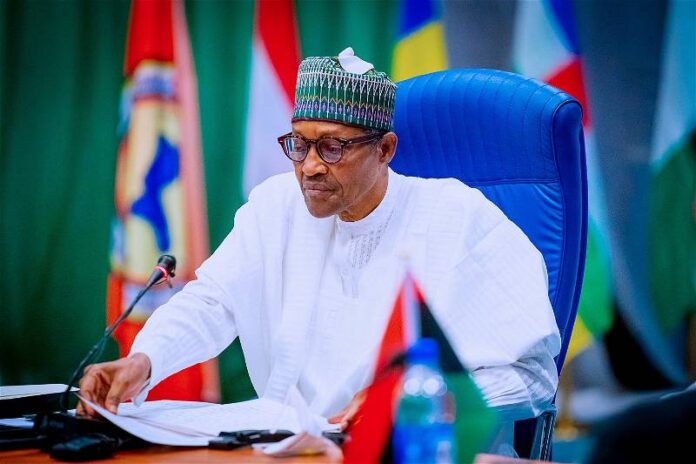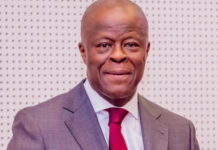By; Jerome-Mario Chijioke Utomi
While the prophecy of foreknowledge, according to him, deals with what is certain to come, prophesy of denunciation tells what is to come if the present situation is not changed; both acting as information and warning respectively.
Kukah who stated this while presenting a keynote speech titled: ‘The Future of Constitutional Democracy in Nigeria: Imperative of a New Constitutional Order,” at the 60th call to bar anniversary of Aare Afe Babalola on in Ado Ekiti, Ekiti State on Monday, July 10, 2023, an event that had Former president, Olusegun Obasanjo as Chairman, argued that the country is shared its sovereignty with bandits and terrorists, and submitted that even though corruption did not start during Buhari’s tenure, it was amplified morally, financially and in other terms in the last administration.
Though he said it in a different way, venue and time, in the real sense of it, this piece believes that Bishop Kukah may not have said something new or different from what Nigerians have been worried about all these years. In fact, endemic corruption in the country has been a reality many Nigerians of goodwill worried about in the past 8years of President Buhari’s administration.
Analysts have also in the past expressed worries that within the years under review, no nation best typified a country in dire need of peace and social cohesion among her various sociopolitical groups than Nigeria as myriads of sociopolitical contradictions conspired directly and indirectly to give the nation an unenviable tag of a country in constant search of social harmony, justice, equity, equality, and peace.
First and very fundamental, it will definitely lead to a situation in the country whereby corruption would spread its wings across the nation, destroying whatever necessary virtue left behind for human and infrastructural development. Secondly, if the current Federal Government fails to arrest the drifting ‘culture of corruption’ as spotted in the previous administration, Kukah’s speech shall in no distant amount to a ‘prophesy of denunciation’ that foretold what is to come if the present situation is not changed-but was ignored.To further understand where this piece is headed, It is worthy of note that none of the current challenges; political, socioeconomic and corruption started with Buhari’s administration. They have long existed in the country.
Corruption according to reports is, but a human problem that has existed in some forms. Its fights also date back to Colonial governments as they (Colonial Overlords) sufficiently legislated against it in the first criminal code ordinance of 1916(No15 of 1916) which elaborately made provisions prohibiting official bribery and corruption by persons in the public service and in the judiciary.
Also at independence on October 1, 1960, it was recorded that the criminal code against corruption and abuse of office in Nigeria were in section 98 to 116 and 404 of the code.
But while the situation then may look ugly and challenging, what happened under former President Buhari’s administration was frightening and amply qualifies as a crisis. More specifically, Nigerians with critical minds were particularly unhappy that the President who rode to power by the favour of his fellow citizens and orchestrated ‘integrity’ could not effectively tame corruption in the country but allowed it to take both nepotistic and supportive forms.
As we know, while ‘nepotistic corruption involves unjustified and often unqualified appointment of friends or acquaintances to public offices in violations to the established norms (federal character), supportive corruption on its part refers to actions undertaken to protect the existing or already done corrupt practices particularly when the person(s) involved belong to the same ruling party.
Compounding the ugly reality is that at a time the country’s economy was showing its inability to sustain any kind of meaningful growth that promotes the social welfare of the people, corruption became even more entrenched as scandal upon scandal completely laid bare the anti-corruption stance of Buhari’s administration and those who were initially deceived by the government’s alleged fight against corruption suddenly came to the conclusion that nothing has changed.
This situation becomes even ‘’more appreciated’’ when one remembers that the list of actions not taken by the now rested administration to confront corruption which made Nigerians face actual and potential difficulties remained lengthy and worrisome.
Chiefly among these was the former President’s failure to objectively make the fight against corruption a personal priority for him or those who report directly to him. This particular failure presented the former President as one that started off with high moral standards, strong conviction and determination to beat down corruption but has neither lived up to that good intention nor dealt with all transgressors without exception.
Again, separate from the unwarranted, senseless, premeditate, well organized and orchestrated killings across the country-from Benue to the Plateau, Taraba to Zamfara, Enugu to Ebonyi, Kogi to Edo, Ekiti to Ondo, where Nigerians were cut down at will, which characterized the administration, another ill that plagued President Buhari’s administration, faded its integrity light and mirrored it as a central threat to the nation’s attainment of social progress was the former President’s penchant for following self-made tracks without keeping entirely to the tracks or opinion of the masses. This particular failure and failing on the part of the former President prompted many to conclude that there was something deeply troubling with his disdain for rule of law.
In Education sector, 10.5 million children, going by reports were out of school in under the former administration, the highest in the world. Our industries bore the brunt of a negative economic environment. As a result, job losses and unemployment continue to skyrocket, creating a serious case of social dislocation for the vast majority of our people.
The result of this poor leadership judgement was further signposted in the grinding poverty in the land and amplified by a report from Brookings Institute; which said that Nigeria has overtaken India as the country with the largest number of extremely poor in early 2018 in the world. That was at the end of May 2018; Brookings institute’s trajectories also suggested that Nigeria had about 87 million people in extreme poverty, compared with India’s 73 million.
This result cannot in any ramification be judged as a scorecard of a good leader. To Buhari’s administration, fight against corruption was more of a well said, than a well done assignment.
No wonder Chinua Achebe in his book the trouble with Nigeria stated that Nigerians are corrupt because the system under which they live today makes corruption easy and profitable; they will cease to be corrupt when corruption is made difficult and inconvenient. The trouble with Nigeria is simply and squarely a failure of leadership and Nigeria can change today if it discovers leaders who have the will, the ability, and the vision.To therefore change the narrative and win in race to stamp out corruption in the country, the present Federal Government must recognize that there is nothing more ‘difficult to handle, more doubtful of success, and more dangerous to carry through than initiating such changes as the innovator will make more enemies of all those who prospered under old other’. But any leaders that do, come out powerful, secured, respected and happy.
This piece holds the opinion that stamping out corruption in Nigeria is an opportunity that President Tinubu must not miss.
Utomi Jerome-Mario is the Programme Coordinator (Media and Policy), Social and Economic Justice Advocacy (SEJA), Lagos. He could be reached via;jeromeutomi@yahoo.com/08032725374.


















